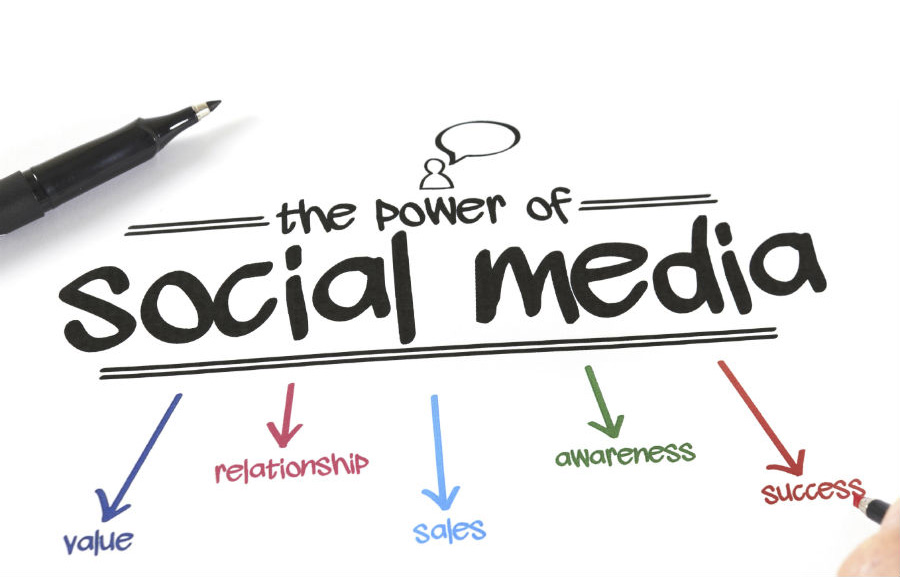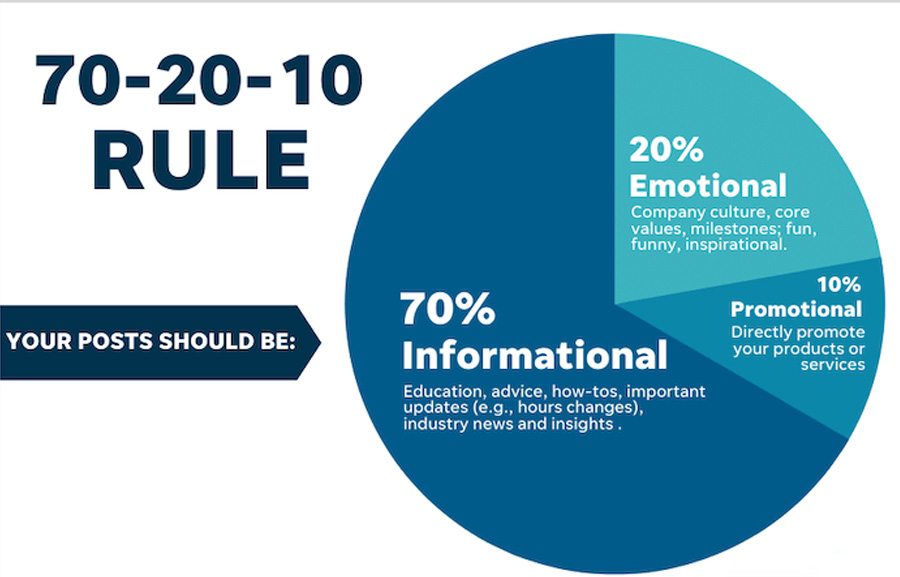More than 80% of consumers say social media – especially Influencer content – significantly influences purchase decisions. As a result, marketers across all industries are driving the evolution of social media marketing from a standalone tool to a versatile source of marketing information about an increasingly important and growing audience.
In 18 years, from 2004 (when MySpace became the first media site to reach one million users) to 2022, the dramatic growth of interactive digital channels has taken social media to levels that even challenge the reach of television and radio.
By the first quarter of 2022, there were 4.6 billion social users worldwide – more than 58% of the world’s population – an increase of more than 10% in just one year.
As social media usage continues to grow, marketers are perfecting their strategies to take advantage of the significant competitive advantage that engagement with this important audience can provide even faster and more effectively than traditional marketing.

KEY TAKEAWAYS
- Social media marketing uses social media and social networks such as Facebook, Twitter, and Instagram to market products and services, connect with existing customers, and reach new customers.
- The power of social media marketing lies in its unparalleled capacity in three key marketing areas: Connection, Interaction, and Customer Data.
- Social media marketing has changed the way companies can influence consumer behaviour – from promoting content that drives engagement to mining personal data to ensure messages resonate with users.
- Because social media is so ubiquitous today, marketing techniques that leverage these platforms are extremely important for businesses.
What is social media marketing ?
Social media marketing (also known as digital marketing and e-marketing) is the use of social media – the platforms on which users build social networks and share information – to build a company’s brand, increase sales, and drive website traffic. Social media marketing (SMM) not only offers businesses the opportunity to connect with existing customers and reach new ones, but also has specialised data analytics that allow marketers to track the success of their efforts and identify even more opportunities for engagement.
Why is social media marketing so effective?
The power of social media marketing lies in social media’s unparalleled capacity in three key marketing areas: Connection, Interaction, and Customer Data.
Connection: Not only does social media allow companies to connect with their customers in ways that were once impossible, but there is an extraordinary range of ways to engage with target audiences – from content platforms (like YouTube or Tiktok) to social sites (like Facebook or Instagram) to microblogging services (like Twitter).
Interaction: the dynamic nature of interaction on social media – whether direct communication or passive “liking” – enables companies to leverage free advertising opportunities through eWOM (electronic word-of-mouth) referrals between existing and potential customers. Not only is the positive contagion effect of eWOM a valuable driver of consumer decisions, but the fact that these interactions occur on social networks makes them measurable. For example, companies can measure their “social equity” – a term for the return on investment (ROI) of their social media marketing (SMM) campaigns.
Customer data: A well-thought-out social media marketing (SMM) plan provides another invaluable resource for driving marketing results: Customer data. Rather than being overwhelmed by the 3 Vs of Big Data (volume, variety, and velocity), SMM tools can not only extract customer data, but also turn this gold into actionable market analytics – or even use the data to develop new strategies.

How social media marketing works
As platforms like Facebook, Twitter, Instagram and Tiktok began their triumphant march, social media not only changed the way we connect with each other, but also the way companies can influence consumer behaviour – from promoting content that drives engagement to mining geographic, demographic and personal information to ensure messages resonate with users.
Social media marketing strategy
SMM action plan: The more targeted your social media marketing strategy, the more effective it will be. Hootsuite, a leading provider of social media management software, recommends the following action plan for building an SMM campaign, which includes both an execution framework and performance metrics:
- Align SMM goals with clear business objectives
- Get to know your target customers (age, location, income, job title, industry, interests)
- Conduct a competitive analysis on your competition (successes and failures)
- Review your current SMM (successes and failures)
- Create a social media calendar for delivering SMM content
- Create top-notch content
- Track performance and adjust SMM strategy as needed
- Customer Relationship Management (CRM): Compared to traditional marketing, social media marketing has several key advantages. These include the fact that SMM enables two types of interactions that are targeted customer relationship management (CRM) tools: both customer-to-customer and business-to-customer. In other words: While traditional marketing primarily tracks customer value by capturing purchase activity, SMM can track customer value both directly (through purchases) and indirectly (through product recommendations).
- Shareable content: Companies can also turn the increased interconnectedness of SMM into the creation of “sticky” content. This is the marketing term for engaging content that appeals to customers at first glance, gets them to buy products, and then gets them to share the content. This type of word-of-mouth marketing not only reaches an otherwise inaccessible audience, but is also implicitly endorsed by someone the recipient knows and trusts – making shareable content creation one of the most important growth factors in social media marketing.
- Earned Media: Social media marketing (SMM) is also the most efficient way for a business to take advantage of another type of earned media (a term for brand exposure through methods other than paid advertising): customer-generated product reviews and recommendations.
- Viral Marketing: another SMM strategy that relies on the audience to generate the message is viral marketing, a sales technique that seeks to trigger the rapid spread of product information through word of mouth. Once a marketing message is disseminated to the public far beyond the original target audience, it is considered viral – a very simple and cost-effective method of sales promotion.
- Customer segmentation: Because customer segmentation is much more sophisticated in social media marketing (SMM) than in traditional marketing channels, companies can ensure that they focus their marketing resources precisely on their target groups.

How do tracking metrics work?
According to Sprout Social, the most important metrics for social media marketing (SMM) focus on the customer: Engagement (likes, comments, shares, clicks), Impressions (how many times a post is viewed), Reach/Virality (how many times an SMM post is viewed), Share of Voice (how far a brand reaches in the online sphere), Referrals (how a user lands on a website), and Conversions (when a user makes a purchase on a website). However, another very important metric focuses on the business: response rate/time (how often and how quickly the business responds to customer messages).
When a business is trying to figure out which metrics to track in the data deluge of social media, the rule is that each business goal should be linked to a relevant metric. If your business goal is to increase the conversion rate of an SMM campaign by 15% in three months, then use a social media analytics tool that measures the effectiveness of your campaign against that specific goal.

Advantages and disadvantages of social media marketing
Customised social media marketing (SMM) campaigns that instantly reach a range of audiences are clearly beneficial to any business.
But like any social media content, SMM campaigns can leave a company vulnerable. For example, a viral video claiming that a product causes illness or injury needs to be clarified immediately – regardless of whether the claim is true or false. Even if a company can set the record straight, false viral content can result in consumers buying less in the future or in litigation.

- Sticky content is the marketing term for attractive content that captivates customers at first glance and then persuades them not only to buy products, but also to share the content.
- Viral marketing is an SMM strategy that seeks to trigger the rapid spread of product information through word of mouth – a very simple and cost-effective method of promoting sales.
- Earned media is a marketing term for brand exposure through methods other than paid advertising, such as customer-generated content ranging from product reviews and recommendations to shares, reposts, and mentions.
- Social media marketing has evolved into a set of techniques and strategies to target users and market products and services. These include targeting advertising, using interactive chatbots, creating personalised experiences for customers online, using social media influencers, building an online audience, and so on.

How can you get started in social media marketing?
As long as you can develop a good understanding of how marketing campaigns work on various platforms like Facebook, Twitter, Instagram, and Tiktok, you should be able to showcase your talents by creating compelling and effective content. Follow influencers and other social media marketers to learn what they do well and where they fail. Use these steps to create a personal brand and sell yourself and your work.
Conclusion
Social media marketing (SMM) is the use of social media platforms to interact with customers in order to build brands, increase sales and drive website traffic. As social media use increases around the world via both computers and mobile devices, the ability to drive sales to specific user groups is a growing business with strong competition for views and clicks.














